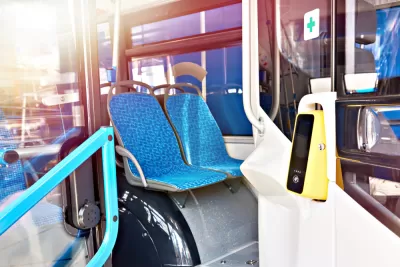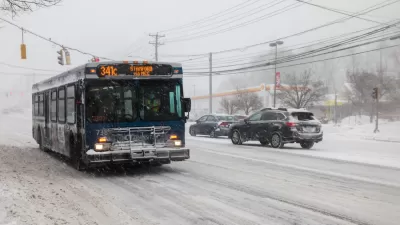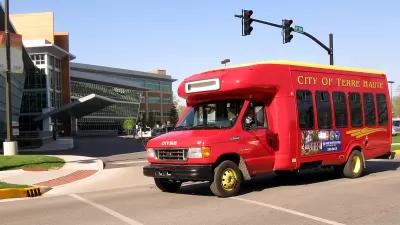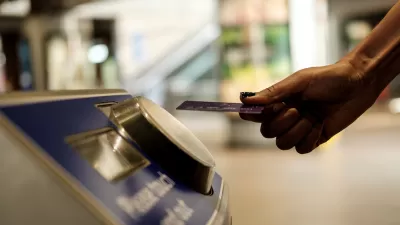Many of the riders who rely on public transit the most are also least likely to be able to use cashless fare systems.

A study from the University of Oregon reveals that eliminating cash payments on public transit systems can harm low-income users, who are often most dependent on transit for daily needs.
“They’re also less likely to have a credit card, smartphone, or even the cash reserves to pay for a monthly transit pass upfront,” and have a harder time reloading fare cards without cash options, the study showed. “If people have to visit a gas station or convenience store to reload their bus card with cash, how will they get there?”
“Maintaining cash fare boxes is very expensive; each one can cost thousands of dollars. But accepting cash also increases ridership, giving people more flexibility to hop on a bus without having to jump through hoops to set up an account or link a credit card.” In other words, transit agencies could still lose revenue from lost ridership despite the savings of eliminating cash fareboxes.
The report’s author, Professor Anne Brown, points out the simplest solution: no fares for anyone. “Fares make up only a part of the budget for most transit agencies, and that financial gap could be closed in other ways.” Proponents of fare-free transit argue that—when paired with effective service—it eliminates a major expense for low-income commuters and encourages more ridership.
FULL STORY: Study: Cash payments remain a key part of equitable transit

Study: Maui’s Plan to Convert Vacation Rentals to Long-Term Housing Could Cause Nearly $1 Billion Economic Loss
The plan would reduce visitor accommodation by 25,% resulting in 1,900 jobs lost.

North Texas Transit Leaders Tout Benefits of TOD for Growing Region
At a summit focused on transit-oriented development, policymakers discussed how North Texas’ expanded light rail system can serve as a tool for economic growth.

Using Old Oil and Gas Wells for Green Energy Storage
Penn State researchers have found that repurposing abandoned oil and gas wells for geothermal-assisted compressed-air energy storage can boost efficiency, reduce environmental risks, and support clean energy and job transitions.

Santa Barbara Could Build Housing on County Land
County supervisors moved forward a proposal to build workforce housing on two county-owned parcels.

San Mateo Formally Opposes Freeway Project
The city council will send a letter to Caltrans urging the agency to reconsider a plan to expand the 101 through the city of San Mateo.

A Bronx Community Fights to Have its Voice Heard
After organizing and giving input for decades, the community around the Kingsbridge Armory might actually see it redeveloped — and they want to continue to have a say in how it goes.
Urban Design for Planners 1: Software Tools
This six-course series explores essential urban design concepts using open source software and equips planners with the tools they need to participate fully in the urban design process.
Planning for Universal Design
Learn the tools for implementing Universal Design in planning regulations.
Ascent Environmental
Borough of Carlisle
Caltrans
Institute for Housing and Urban Development Studies (IHS)
City of Grandview
Harvard GSD Executive Education
Toledo-Lucas County Plan Commissions
Salt Lake City
NYU Wagner Graduate School of Public Service





























